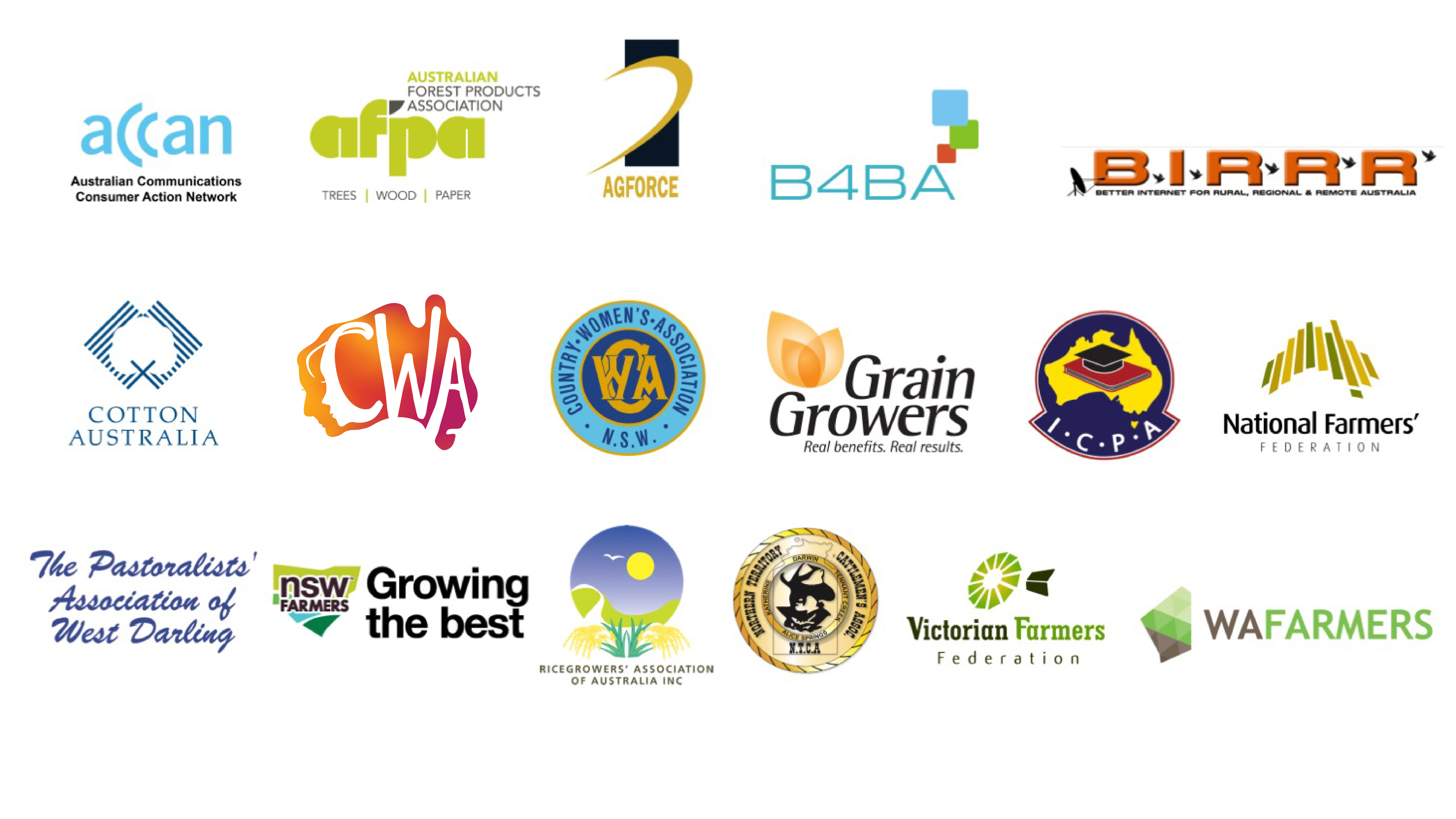 In late January/early February members of the Regional, Rural and Remote Communications Coalition attended public hearings to voice concerns on the Productivity Commission’s draft inquiry report on the Universal Service Obligation (USO).
In late January/early February members of the Regional, Rural and Remote Communications Coalition attended public hearings to voice concerns on the Productivity Commission’s draft inquiry report on the Universal Service Obligation (USO).
This post covers the hearings attended by Victorian Farmers Federation (VFF), AgForce Queensland and Better Internet for Rural, Regional & Remote Australia (BIRRR).
Read our first blog on the USO hearings for comments from the Isolated Children’s Parents’ Association (ICPA), the Country Women’s Association (CWA) of NSW, the National Farmers’ Federation (NFF), NSW Farmers and ACCAN.
The issues
VFF Vice President, Brett Hosking, spoke about the opportunities and improvements that would be available to farmers with improved telecommunications services.
“Whenever we travel out to rural areas, the number one thing that’s talked about is mobile connectivity and access to data and the internet,” said Mr Hosking. “We’re moving very rapidly into a more technological era, and there are a lot of opportunities there for agriculture to improve our productivity, our sustainability, our efficiency, and the opportunities that we have in agriculture. But we’re currently in a situation where we’re very heavily limited by our access to connectivity and data, so I guess in response to the inquiry, we’ve advocated quite strongly for a technology-neutral USO that covers, you know, voice communication as well as data.
“We think certainly data should be part of it, without a doubt. We have moved into that part of the world now where data is part of everyday lives.”
At the Melbourne public hearing, AgForce South-East Regional Director, Georgie Somerset, outlined recommendations on the future of voice services under the USO.
“AgForce recommends that the revised USO not consider a transition to digital telecommunications services such as satellite and fixed wireless in the rural, regional and remote parts of Queensland unless acceptable reliability can be ensured, and that reliable access and quality of service, e.g. for voice services, is not compromised,” said Mrs Somerset. “We do not believe that the current Sky Muster is suitable for voice and we have reservations about the capacity of fixed wireless at the edges of the coverage is going to be able to deliver a voice service.
“We believe that the copper line will still be the most reliable for many of our members, particularly in the outer regional and remote.”
BIRRR founder, Kristy Sparrow, put forward strong arguments as to why Sky Muster is unsuitable to deliver voice services to people in regional and remote Australia.
“Our submission, which no one paid us to do or funded us to complete, comes from the heart and extensive research and surveys of those using telecommunications in regional areas,” said Mrs Sparrow. “It tells the real story of what it is like to have no landline phone for six weeks and no working internet for four months. Our submission extensively highlights why NBN Sky Muster, a service designed to deliver fast broadband, will simply not work as a voice service.
“NBN specifically states that you should keep your existing landline, because the Sky Muster satellite was not designed for voice. There are several limitations of supply of VOIP service using this network. Our submission details these limitations.
“Additionally, we urge the Commission to consider that the removal of the copper continuity program will see large numbers of residences that are mapped for NBN Sky Muster lose their ADSL connection, and be forced to use, what is in theory, a broadband technology. If copper lines are discontinued, this will significantly increase the load on Sky Muster and also mobile broadband towers, which are already suffering from supply and congestion issues in regional areas.”
Members of the Regional, Rural and Remote Communications Coalition are:

Download: ![]() Having a say on the USO part two42.68 KB
Having a say on the USO part two42.68 KB

Comments powered by CComment